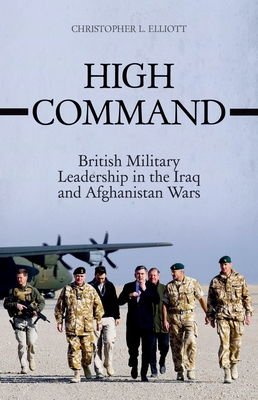High Command: British Military Leadership in the Iraq and Afghanistan Wars

High Command: British Military Leadership in the Iraq and Afghanistan Wars
From 2001, Britain supported the United States in wars in Iraq and Afghanistan. "Victory" in such conflicts is always hard to gauge and domestic political backing for them was never robust. For this, the governments of Tony Blair and Gordon Brown were held responsible, and paid the price, but the role played by the High Command in the Ministry of Defence also bears examination. Critics have noted that the armed services were riven by internal rivalry and their leadership was dysfunctional, but the truth is more complicated. In his book, General Elliott explores the circumstances that led to these wars and how the Ministry of Defence coped with the challenges presented. He reveals how the Service Chiefs were set at odds by the system, almost as rivals in the making, with responsibility diffuse and authority ambiguous. The MoD concentrated on making things work, rather than questioning whether what they were being asked to do was practicable. Often the opinion of a junior tactical commander led the entire strategy of the MoD, not the other way around, as it should have been. While Britain's senior officers, defense ministers and civil servants were undeniably competent and well intentioned, the conundrum remains why success on the battlefield proved so elusive.
Descrierea produsului
From 2001, Britain supported the United States in wars in Iraq and Afghanistan. "Victory" in such conflicts is always hard to gauge and domestic political backing for them was never robust. For this, the governments of Tony Blair and Gordon Brown were held responsible, and paid the price, but the role played by the High Command in the Ministry of Defence also bears examination. Critics have noted that the armed services were riven by internal rivalry and their leadership was dysfunctional, but the truth is more complicated. In his book, General Elliott explores the circumstances that led to these wars and how the Ministry of Defence coped with the challenges presented. He reveals how the Service Chiefs were set at odds by the system, almost as rivals in the making, with responsibility diffuse and authority ambiguous. The MoD concentrated on making things work, rather than questioning whether what they were being asked to do was practicable. Often the opinion of a junior tactical commander led the entire strategy of the MoD, not the other way around, as it should have been. While Britain's senior officers, defense ministers and civil servants were undeniably competent and well intentioned, the conundrum remains why success on the battlefield proved so elusive.
Detaliile produsului












